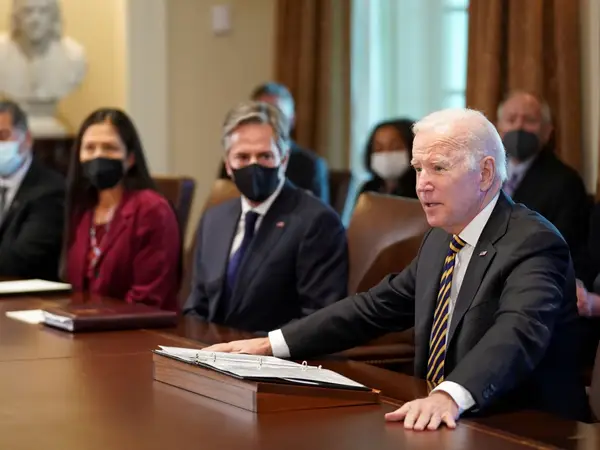With the disappointing end to the Iran nuclear talks on Friday, Israel is engaged in new efforts to dissuade Washington from offering any concessions to Tehran.
Israeli Prime Minister Naftali Bennett urged world powers to take a hard line against Iran in negotiations aimed at reviving 2015 nuclear agreement, as his top defense and intelligence officials headed to Washington to discuss the flailing talks.
Israeli officials believe that the US did not expect Iran to come to Vienna with an uncompromising posture and they think the pause in the talks offers a chance for them to put pressure on the Biden Administration to reconsider its approach toward Iran, Haaretz reported.
Haaretz reported that Israeli officials repeated a warning over the weekend that the United States might still be interested in offering sanctions relief to Tehran in exchange for a partial deal.
Mossad chief David Barnea travels to Washington on Sunday to discuss the Iran nuclear negotiations, after the three European signatories of the Iran nuclear deal (JCPOA) and the US voiced disappointment at the seventh round of talks with Iran in Vienna.
Israel opposed the original deal, arguing that it would not stop Iran to produce nuclear weapons as its limitation are due to mostly end by 2030. Israel also backed former president Donald Trump’s decision to withdraw from the JCPOA in 2018 and pursue ‘maximum pressure’ sanctions.
With the Biden Administration seemingly eager to restore the agreement, Israel and others believe the outcome would be even worse than the previous deal, without expanding its limitation.
Iran’s new hardline government appears not to be in the mood for any concessions, reneging even on compromises it had made in the first six round of talks from April to June.
Haaretz said that Barnea will try to persuade the Biden Administration to avoid an interim or partial deal if it does not ensure Iran’s return to full compliance with the JCPOA limitations. The most important cap the agreement put on Iran’s nuclear program was its limit on uranium enrichment.
Iran began breaking those limits in 2019 as retaliation against US sanctions and accelerated enrichment even further in early 2021 just as the new US administration announced its readiness to engage in talks to revive the agreement.
On Sunday when the Israeli deputy defense minister Alon Schuster was asked about a loud explosion Saturday night near Iran’s key nuclear site, he said “can’t say” what hit Natanz. He added that Israel is currently trying to bring about a change in the motivations of the whole world through diplomatic means.”
“We have a duty to be brave and responsible for the fate of our children and grandchildren,” he said. “We have used force against our enemies in the past and we are convinced that in extreme situations, there is a need to act using military means.”
Haaretz also said that Barnea’s meetings in Washington will be “extremely significant”. He will tell the Americans that Israel will not consider itself bound by any agreement with Iran. Earlier, Israeli officials had said that if a deal does not permanently block Iran’s path to nuclear weapons, it has to act based on its national security requirements.
Israeli defense minister Benny Gantz will also visit Washington later in the week, with talks expected to focus on Iran.
